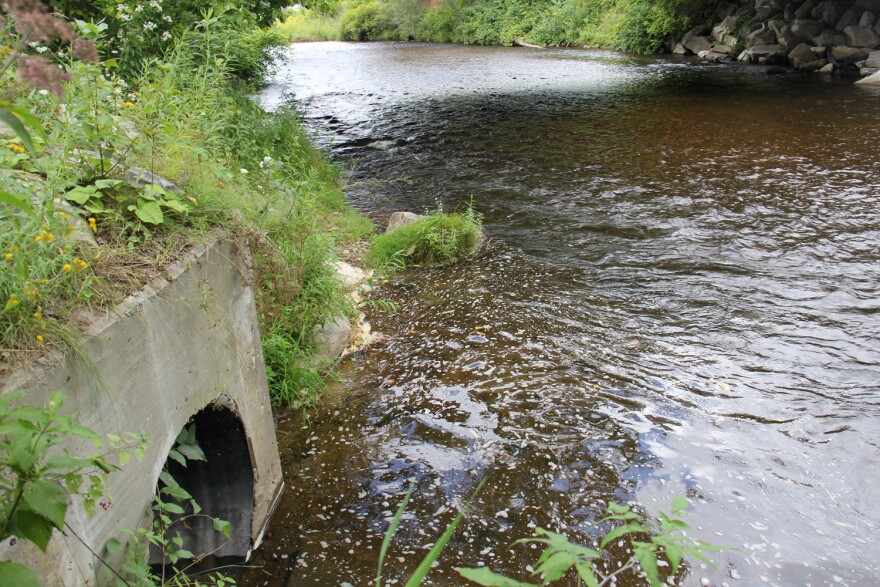Unintended releases from sewage treatment plants are happening all over the state, most recently in Burlington where a computer failure last week allowed 3 million gallons of partially disinfected wastewater to enter Lake Champlain.
State and local government are working to upgrade sewer and stormwater systems, but progress can be slow and upgrades are expensive.
Find the Agency of Natural Resources' sewage overflow alerts here.
Burlington officials are quick to point out that it was not 3 million gallons of raw sewage that poured into Lake Champlain early last week. It was wastewater that had been treated but not disinfected.
“Our projections are that the wet weather flow was 95 percent or more stormwater, with a 5 percent sewage fraction," said Chapin Spencer, the Burlington’s public works director. "It was, again, treated but not disinfected."
But harmful bacteria remained. The incident followed other failures in May and June. Spencer said the department is committed to doing better.
“We, the Department of Public Works, own the responsibility to prevent them moving forward,” Spencer said. “It literally has kept us up at night, working through the night.”
Megan Moir, the city’s director for water resources, said Burlington’s sewer and stormwater system is actually more advanced than many in the state since it was upgraded in the 1990s. The system is designed to treat stormwater – that’s the stuff that's washed off the streets when it rains, which contains animal waste and other nasty material.
“We actually have this wet weather treatment system which is specifically designed to do the best that it can when the combined sewer discharge comes to the plant,” Moir said. “Prior to our 1994 upgrade, all of what we’re now treating at the plant was actually going out into the lake and other water bodies as completely untreated combined sewer overflows.”
State and local government are working to upgrade sewer and stormwater systems, but progress can be slow and upgrades are expensive.
Many other towns and cities in Vermont have more antiquated combined wastewater and sewer systems, and these can become overwhelmed during heavy rainstorms. Jessica Bulova, the wastewater program manager at the Department of Environmental Conservation, said municipalities with these systems will be required to eventually comply with state water quality standards.
“So those are kind of considered different beasts because they are being required to work towards that, but that’s not something that can happen overnight,” Bulova said. "And these have, you know, been longtime systems that have had these overflows, whereas some of the more recent incidents — unfortunately in Burlington, where there was a failure of a computer system – that’s a different scenario.”
Bulova said the state is investigating the recent Burlington release. And Spencer said that Burlington voters will also be asked in March to consider an $8 million to $10 million investment in the the city’s wastewater treatment infrastructure.






